Text
@narutothoughts too my bad i read @rayshippouuchiha ‘s ao3 fanfics before reading your tumblr drabbles
@rayshippouuchiha is literally the ceo of the kakanaru tag.
12 notes
·
View notes
Text
Omegaverse au where alphas are supposed to have a stronger scent than their mate so that the omegas can be covered in their scent for protection. If the omegas scent is stronger it means they aren’t compatible.
Naruto of course has one of the strongest scents anyone has ever smelled and can’t find a single alpha he’s compatible with. He’s tried to share his heat with the few alphas his scent didn’t intimidate into keeping their distance but every time without fail his omega-brain refused to feel safe in the arms of an alpha that couldn’t even cloak his scent with their own.
Enter kakashi whose Hatake heritage makes his scent strong enough to gag on. Useful in a fight for intimidation, maybe, but it’s not something he uses often considering the ANBU grade scent blockers he’s been using since before he even presented.
Enter Tenzo and Sakura simultaneously deciding to play match maker for their friends
98 notes
·
View notes
Text
Naruto knows he shouldn't feel guilty, but he does every day when he opens his lunch and sees a lovingly packed meal for him. When Kakashi was Hokage, Naruto was far too busy on missions and other work to pack Kakashi anything. The well balanced, somewhat extravagant meal Kakashi always packs for him feels too kind.
Meanwhile Kakashi is at home so glad he has a bottomless pit of a husband to feed his leftovers to because he simmered the sauce for twelve hours just to have one (1) bowl of noddles and he is not eating another spoonful. He slaps that shit in a lunch box and calls it a day.
66 notes
·
View notes
Text
1. Go watch those videos of cats jumping when they touch tinfoil
2. Imagine Naruto doing that when Kakashi asks him to put their food away
3. Prosper?
17 notes
·
View notes
Note
On god I used to pray for times like these (at least two active kakanaru posters on the tag) 😫😫😫

@narutothoughts us core
21 notes
·
View notes
Text
been religiously following @codename-adler ‘s socmed au and have finally decided to join the fray thus i present you these :D




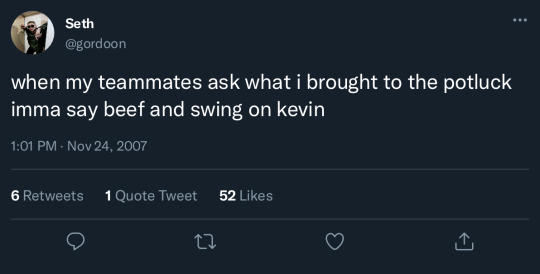



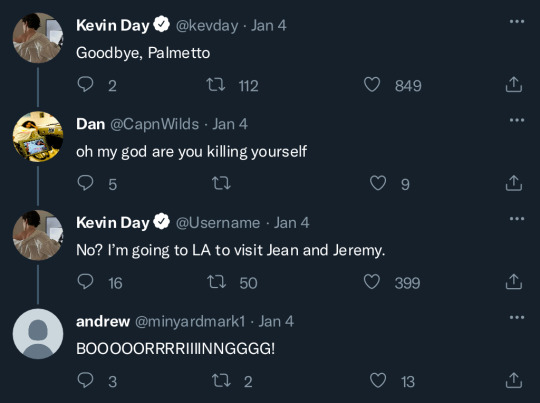

pt. 2 >
797 notes
·
View notes
Text







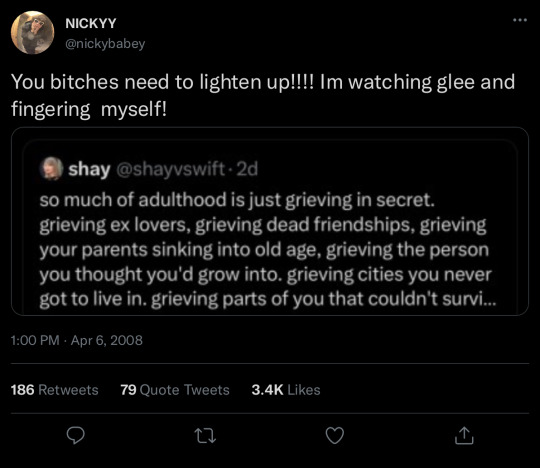


pt. 3!! <pt.2 pt.4>
taglist (tag podium) for @andrewsleftarmband <3
562 notes
·
View notes
Text










pt. 4 !! < pt.3 pt.5 >
taglist (tag throne) for @andrewsleftarmband <3
french tweets will be making a return as soon as i conquer my crippling fear of grammatical errors and remember the word for cunt
778 notes
·
View notes
Text










pt.5!! <pt.4 pt.6>
french translation:
-irish goodbye but i’m killing myself
-i’m going to do the world a favour and take you with me
tag pedestal for @andrewsleftarmband <3
424 notes
·
View notes
Text

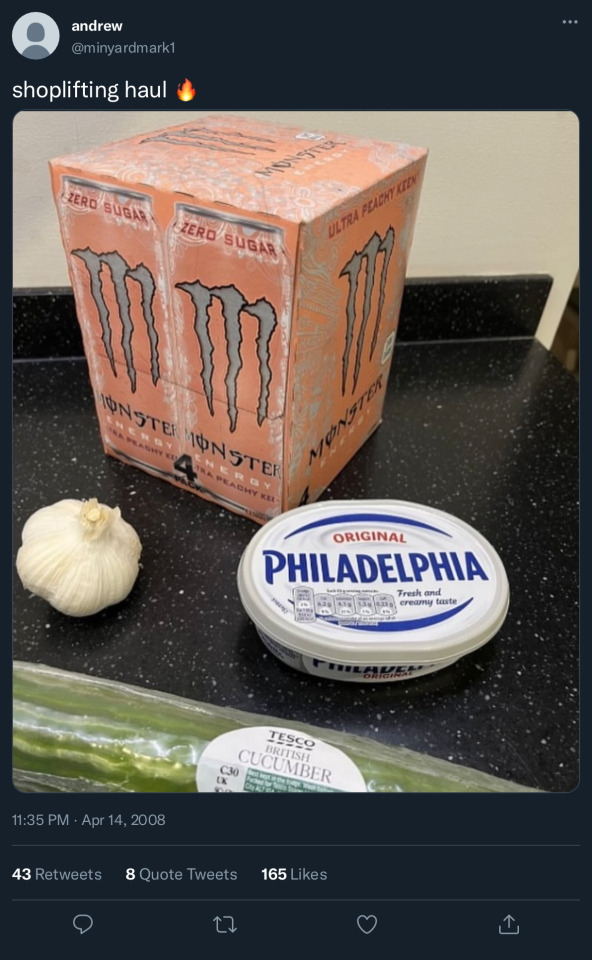


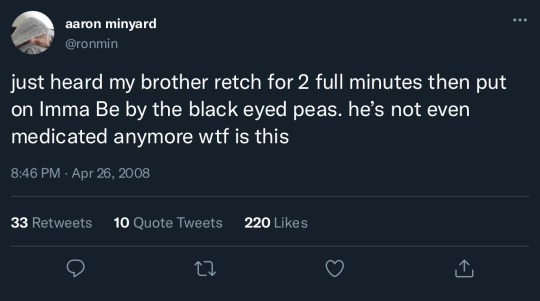
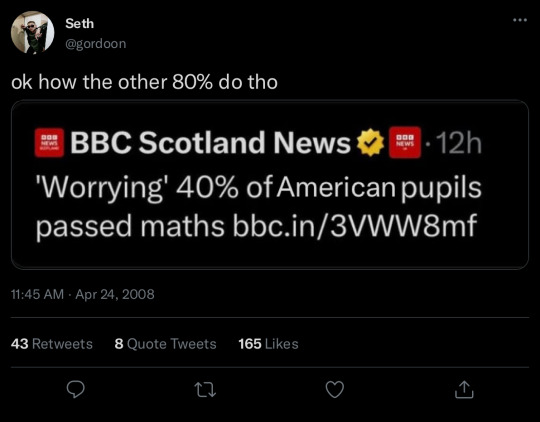

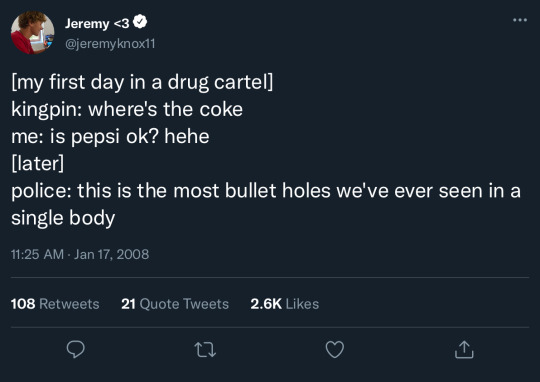


part 6!! < pt.5 pt.7 >
tag panopticon for @andrewsleftarmband <3
more brewing but i fear they’re close to generating an actual plot so this may go on for some time
1K notes
·
View notes
Text



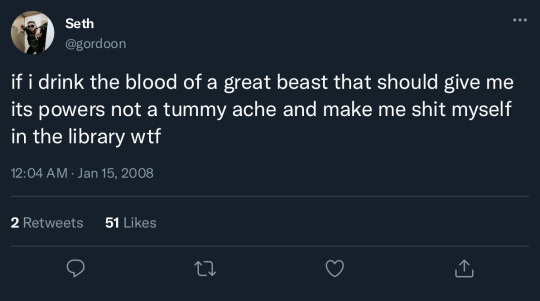






pt. 7 !! <pt.6 pt.8>
french translation: how joyless you are. little bitch
tag plinth for my beloved @andrewsleftarmband <3
627 notes
·
View notes
Text










pt. 8!! < pt.7 pt.9>
taglist for @andrewsleftarmband @blurryhour @you-know-i-get-itt @notexactlythatgirl <33
610 notes
·
View notes
Text










pt. 10!! <pt.9 pt.11>
french translation: Whenever I am sad I want him to collapse to the ground and clutch at his chest. Sending damage from California.
taglist for @andrewsleftarmband @blurryhour @you-know-i-get-itt @notexactlythatgirl <333
757 notes
·
View notes
Text

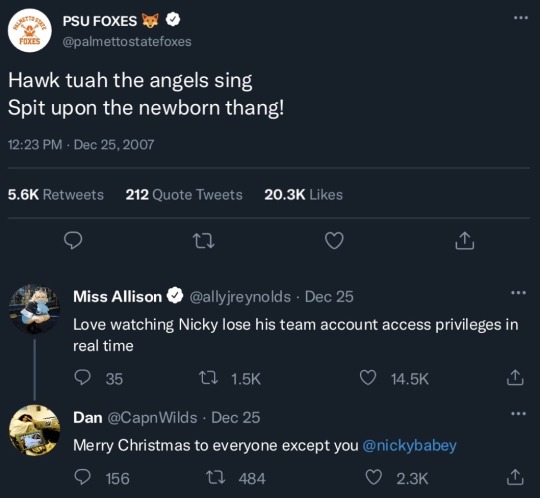







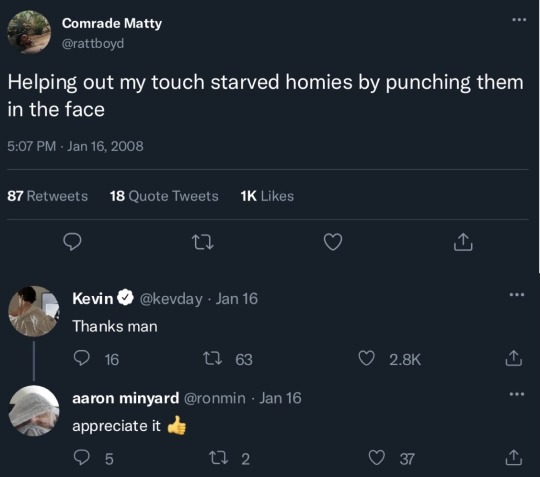
pt.11 !! <pt.10 pt.12>
taglist for @andrewsleftarmband @blurryhour @you-know-i-get-itt @notexactlythatgirl @strangeoffputtingrat @tessasilverswan <333
619 notes
·
View notes
Text










pt.12!! <pt.11 pt.13>
french translation:
-are you alright? i can call
-ANDREW THREW OUT MY PROTEIN BARS
-for fuck’s sake
taglist: @andrewsleftarmband @blurryhour @you-know-i-get-itt @notexactlythatgirl @strangeoffputtingrat @tessasilverswan @minyard-05 @carbon-dated-gal
710 notes
·
View notes
Text










pt.13 !! <pt.12 pt.14>
taglist for @andrewsleftarmband @blurryhour @you-know-i-get-itt @notexactlythatgirl @strangeoffputtingrat @tessasilverswan @minyard-05 @carbon-dated-gal @bisexualchaosdemon @stormiiflies <3
560 notes
·
View notes
Text




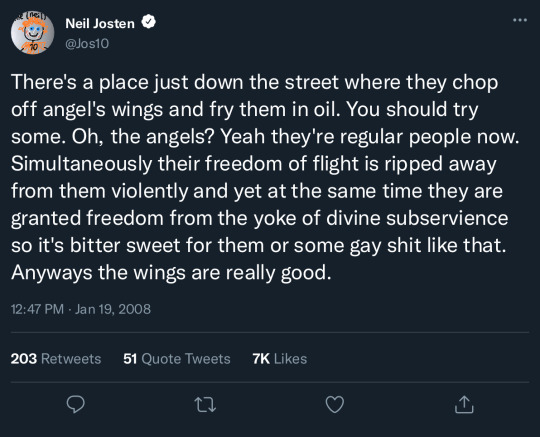





pt.14!! <pt.13 pt.15>
taglist for @andrewsleftarmband @blurryhour @you-know-i-get-itt @notexactlythatgirl @strangeoffputtingrat @tessasilverswan @minyard-05 @carbon-dated-gal @bisexualchaosdemon @stormiiflies <333
551 notes
·
View notes